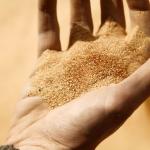
A potentially fascinating discovery:
It seems somehow inappropriate to call it “earth-shattering.”
Along related lines, what about this piece?
***
And now for something completely different:
***
Father Stanley Jaki (1924-2009) was a Hungarian-American priest of the Benedictine order. He was also a distinguished historian of science, especially as it interacts with and is influenced by Christianity. He held a doctorate in theology from the Pontifical Atheneum of St. Anselm in Rome (1950), as well as a doctorate in physics from New York City’s Fordham University, where he studied under the Nobel laureate Victor Hess, a co-discoverer of cosmic rays.
Here are three quotations from Father Jaki:
Investing science with a prophetic and messianic role has not been the doing of science. Exact science, or rather its best cultivators, have never claimed that role. Exact physical science came into its own when during the seventeenth century it eliminated from its ken questions about existence, meaning, purpose, and the like. No wonder that sensitive physicists instinctively reject appeals from shortsighted humanists to do science in a so-called meaningful, or prophetic way. The cultivation of that meaningfulness is the business of the philosophy of being, or metaphysics, and of religion, if one wants to go even further. This is not to suggest that science is not full of philosophical presup- positions. But philosophy as such is not a direct part of the scientific strategy of exploring what can be known quantitatively about nature and existence.
Jaki, Chance or Reality and Other Essays, p. 138
To foresee the behavior of things, man had to depersonalize his study of the universe. It was as if one were to consider the beautiful display on the state of nature a poetic disguise and look for the ultimate reality in the ugly, soulless mesh of ropes, pulleys, and levers found backstage.
Jaki, The Relevance of Physics, p. 51
For all its greatness, the scientific mind is not infallible. In its reasonings it repeatedly became the victim of foibles, biases, prejudices, and even of sheer blindness to the obvious.
Jaki, The Absolute Beneath the Relative and Other Essays, p. 65
Posted from Seattle, Washington











